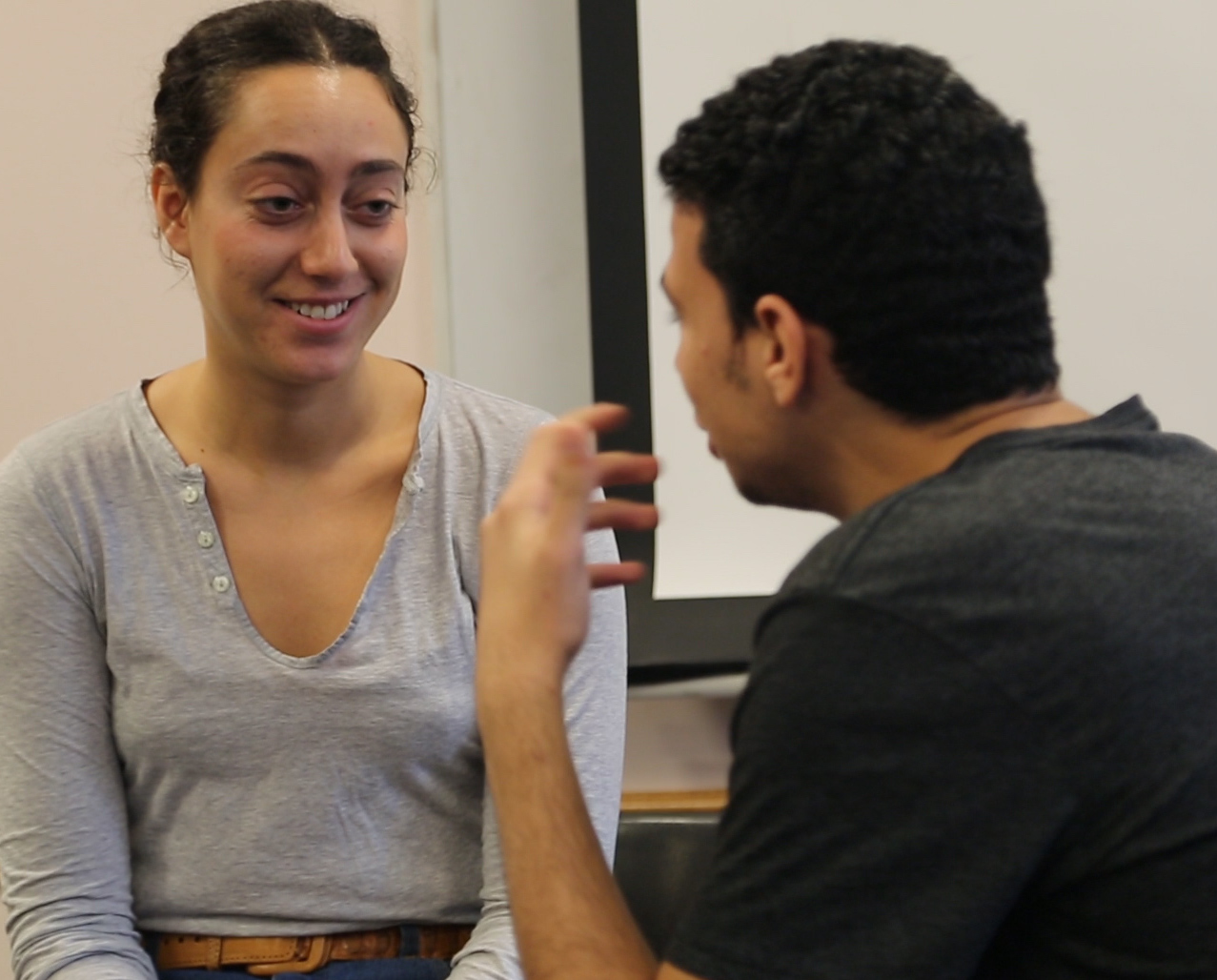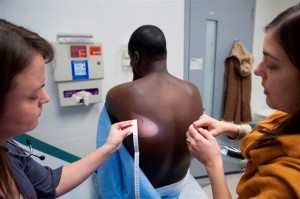
Struggling help for torture survivors
By Qiuxuan (Lucille) Lyu
This year is really a tough year for Dr. Allen Keller, the Director and a Co-Founder of the Bellevue/NYU Program for Survivors of Torture. He can hardly sleep at night because he always has a long list of patients waiting for help and some of the patients’ stories are hard to let go.
“I remember I ask him a question—what would happen if you go back to your country,” Dr. Keller talked about his early clinical experience as a medical student. “He put his head down, [and said] ’then I would certainly die’. Then I realized that the stakes here are very high.”
Like Dr. Keller, there are more than 450 clinicians and volunteers in the asylum network of Physicians for Human Rights (PHR), an organization founded by physicians in 1986 to provide evaluation and help on asylum seekers and torture survivors nationwide. Last year, PHR did over 500 evaluations to asylum seekers.
The asylum network, started in 1990, gathers clinicians and physicians all over the country to provide free services to torture survivors who need to provide documentations to the immigration court, trying to get qualification to seek asylum in the United States. The clinicians get in touch with the attorneys directly to see what appropriate help they can give to the survivors.
“We are really proud of the asylum network and we are really proud of the volunteers who make up the network,” said Meredith Fortin, PHR Asylum Program Officer. “Expert evaluations could cost several hundreds of dollars and that’s prohibitive for many people applying for asylum who may not even have legal permission to work in this country.”
From HealthRight International
According to the Office for Victims of Crime report, in 2010 an estimated 400,000 torture survivors live in the United States today. Studies have estimated that up to 30 percent of all refugees are torture survivors. Now, the Center for Victims of Torture estimates that there are as many as 1.3 million survivors of politically motivated torture living in the United States.
With the increase of asylum seekers in the US, PHR is trying to provide different curriculums to physicians who want to join their program network. “There are more people who need assistance than we can currently work with,” said Fortin. “We strive to serve people wherever they are.”
From 2010, PHR started to collaborate with a number of student-run human rights clinics that are dedicated to providing forensic evaluations for asylum seekers. The program provides hands-on opportunities to students. Now, there are five medical school clinics working with PHR and three are based in New York City.
Weill Cornell Center for Human Rights (WCCHR) is the first student clinic that has a collaboration program with PHR. WCCHR organizes free one-day evaluation trainings twice a year to medical students from different schools and interested physicians. For each evaluation in the clinic, two to three medical students will observe and take notes of the evaluation done by a licensed physician from PHR. “It is really powerful every time to be able to be a witness to somebody’s story and to document their story, hopefully in a way to help them escape the things that they are trying to get away from,” said Rachel Rosenthal, Director of Organizational Operations of WCCHR.
Apart from the forensic evaluation, the organizations also manage to provide social work services to help asylum seekers better adapt to life in the US. “They had a lot of unmet health needs. There are physical, psychological, and social needs,” said Dr. Keller. The Bellevue/NYU Program for Survivors of Torture is focusing on providing comprehensive services to the asylum seekers instead of just giving evaluations.
HealthRight International is another organization that provides free services to torture survivors. At the end of every evaluation, they also give assessment to these people to see if they need any medical, psychological, social or transportation needs. Every client has a case manager to follow up on his or her status.
Although more and more clinicians are joining the network to help torture survivors, there are many obstacles for these organizations, especially under the shadow of 31 states’ refusal to Syrian refugees. “That news is really disappointing, very upsetting to us,” said Fortin. She said that the news has not impacted their work so far but they are concerned that there will be more discrimination against refugees and asylum seekers. “We really have a moral obligation,” said Lauren Pesso, Program Director of HealthRight International. “The worst case is they can be sent back to the place where they will be killed.”
The tight grant from the government to help torture survivors is also becoming a problem for the organizations. Each year, the Office of Refugee Resettlement administered approximately $11 million in grant funding to the Services for Survivors of Torture program nationwide. The amount of the grant has not changed much since 2011. Pesso said that they had to raise funds in other ways to maintain services since they failed to get the grant this year.
Early this year 21 U.S. Senators formally requested a funding increase of $5 million to $16 million for the grant to help cover the increasing demand.
Dr. Keller is bothered by the grant problem and raises additional funds from other sources like the state and city as well as foundations and private donors. “What keeps me up at night is not the work and the horrible stories that I hear, which are substantial, the story is knowing what we can do if we have the resources to help people and getting the funds,” said Dr. Keller. “I’ve learned for sustainability it is crucial for torture treatment centers such as ours to have diverse funding.”
At a time when American support for refugees is under attack, the physicians, like Dr. Keller, who care for torture survivors remain committed. “We are a country of immigrants and refugees,” noted Dr. Keller. “We take some of the most vulnerable new Americans, the newest arrivals, and help alleviate profound trauma and suffering and help to rebuild lives.”
